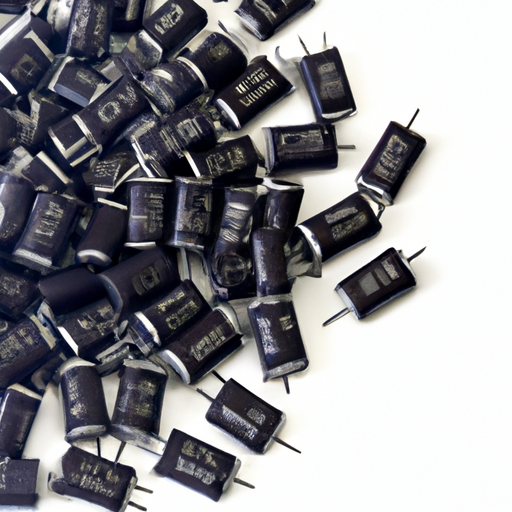Overview of Tantalum-Polymer Capacitors: CFR-50JB-52-1M2
Tantalum-polymer capacitors, such as the CFR-50JB-52-1M2, are advanced electronic components that leverage the strengths of both tantalum and polymer technologies. This combination results in capacitors that are not only compact and efficient but also highly reliable across a range of applications. Below is a detailed exploration of their core functional technology, key features, and notable application development cases.
Core Functional Technology
| 1. Construction | |
| 2. High Capacitance Density | |
| 3. Low ESR (Equivalent Series Resistance) | |
| 4. Temperature Stability | |
| 5. Voltage Ratings | |
| 6. Reliability | |
| 1. Consumer Electronics | |
| 2. Automotive Electronics | |
| 3. Industrial Equipment | |
| 4. Telecommunications | |
| 5. Medical Devices | |
| 6. Power Supply Circuits | |
Key Features
| Low Leakage Current: Essential for applications that require minimal power loss, contributing to energy efficiency.Low Leakage Current: Essential for applications that require minimal power loss, contributing to energy efficiency. |
| Wide Operating Temperature Range: Typically from -55°C to +125°C, making them suitable for harsh environments.Wide Operating Temperature Range: Typically from -55°C to +125°C, making them suitable for harsh environments. |
| High Ripple Current Capability: Ideal for applications with fluctuating loads, ensuring stable performance.High Ripple Current Capability: Ideal for applications with fluctuating loads, ensuring stable performance. |
| RoHS Compliant: Aligns with environmental regulations, making them suitable for modern electronic designs.RoHS Compliant: Aligns with environmental regulations, making them suitable for modern electronic designs. |
Application Development Cases
Conclusion

Tantalum-polymer capacitors like the CFR-50JB-52-1M2 represent a significant advancement in capacitor technology, offering high performance, reliability, and versatility across various applications. Their unique combination of features makes them suitable for modern electronic designs, particularly in demanding environments. As technology continues to evolve, the role of tantalum-polymer capacitors will likely expand, driving further innovation in electronic applications. Their ability to meet the needs of diverse industries underscores their importance in the future of electronic component design.
Overview of Tantalum-Polymer Capacitors: CFR-50JB-52-1M2
Tantalum-polymer capacitors, such as the CFR-50JB-52-1M2, are advanced electronic components that leverage the strengths of both tantalum and polymer technologies. This combination results in capacitors that are not only compact and efficient but also highly reliable across a range of applications. Below is a detailed exploration of their core functional technology, key features, and notable application development cases.
Core Functional Technology
| 1. Construction | |
| 2. High Capacitance Density | |
| 3. Low ESR (Equivalent Series Resistance) | |
| 4. Temperature Stability | |
| 5. Voltage Ratings | |
| 6. Reliability | |
| 1. Consumer Electronics | |
| 2. Automotive Electronics | |
| 3. Industrial Equipment | |
| 4. Telecommunications | |
| 5. Medical Devices | |
| 6. Power Supply Circuits | |
Key Features
| Low Leakage Current: Essential for applications that require minimal power loss, contributing to energy efficiency.Low Leakage Current: Essential for applications that require minimal power loss, contributing to energy efficiency. |
| Wide Operating Temperature Range: Typically from -55°C to +125°C, making them suitable for harsh environments.Wide Operating Temperature Range: Typically from -55°C to +125°C, making them suitable for harsh environments. |
| High Ripple Current Capability: Ideal for applications with fluctuating loads, ensuring stable performance.High Ripple Current Capability: Ideal for applications with fluctuating loads, ensuring stable performance. |
| RoHS Compliant: Aligns with environmental regulations, making them suitable for modern electronic designs.RoHS Compliant: Aligns with environmental regulations, making them suitable for modern electronic designs. |
Application Development Cases
Conclusion

Tantalum-polymer capacitors like the CFR-50JB-52-1M2 represent a significant advancement in capacitor technology, offering high performance, reliability, and versatility across various applications. Their unique combination of features makes them suitable for modern electronic designs, particularly in demanding environments. As technology continues to evolve, the role of tantalum-polymer capacitors will likely expand, driving further innovation in electronic applications. Their ability to meet the needs of diverse industries underscores their importance in the future of electronic component design.







